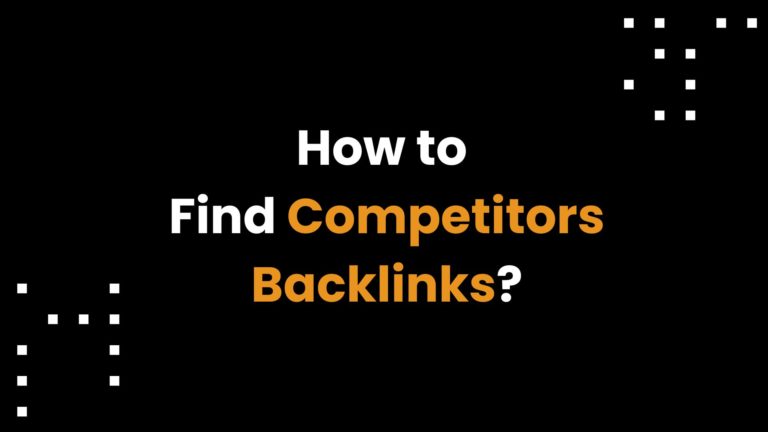Have you ever heard the term reciprocal linking and wondered what it is? The name, vague as it may seem, refers to a quite common link building practice. In this article, we shall explain it thoroughly, not only defining reciprocal linking but also explaining the risks, best practices, and alternatives to it. Did we spark your interest? Then read on! e.
What Is Reciprocal Linking?
Reciprocal linking is the practice of two or more websites linking to each other. Naturally, these websites share the topic, ensuring that the links are relevant. On the other hand, there aren’t direct competitors.
For example, at Linkhouse, we deal with off-site SEO and link building. This means that hypothetically, we could exchange links with Ahrefs – we wouldn’t be in direct competition despite covering the same niche (link building).

Will Reciprocal Linking Hurt Your SEO?
Naturally, you might wonder if exchanging links, especially on purpose, is good for SEO and your website. The answer isn’t straightforward – let us break it down for you.
According to Google Search Essentials (former Google Webmaster’s Guidelines), excessive link exchanges are considered spam and hence can be penalized. In practice, this means that the boundaries are blurry – you can, technically, exchange links, but if this happens too often, Google might strike your website down in SERPs. However, if we consider the current web landscape, this approach makes much more sense.
Nowadays, it’s impossible not to have reciprocal backlinks with other websites in your niche – it happens naturally. Let’s return to our previous example. If Ahrefs published an insightful report, we would probably use it, hence creating a backlink in one of our articles. On the other hand, if we gathered a different type of data and also published a report, the same thing would happen the other way around. This would lead to a natural link reciprocation. And this is exactly why some level of link exchange is accepted by Google – it’s just impossible to avoid.
The case is different for the sites that exchange backlinks on purpose… although is it? If this happens on a small scale and is done so that the algorithm wouldn’t spot it (e.g., through a 3-way link exchange), this shouldn’t hurt your website. But if Google finally discovers this, you’ll likely be penalized. The same goes for large-scale reciprocal linking. Therefore, our advice is that you can opt for this technique from time to time, but don’t make it a cornerstone of your off-site SEO strategy.
Why Do Website Owners Use Reciprocal Links?
If the risk is high, why do website owners even consider reciprocal links? It all goes down to the potential benefits and the opportunity to build long-lasting, meaningful relationships with other websites in your niche.
Reciprocal link building usually involves acquiring high-authority backlinks. As a result, it can lift your domain authority quickly and effectively. That’s why it is good to employ this technique sometimes, as long as you don’t overdo it.
The Risks Regarding Reciprocal Links
We’ve looked at the bright sides of reciprocal links, so now, let’s look at the drawbacks of using this strategy. What are the potential risks connected with this approach?
- Losing out on the trade – Due to the nature of reciprocal links, the less popular website usually benefits from them slightly more. Hence, you either need to establish partnerships with players bigger than you or build a relationship in which you don’t reap the full harvest of this strategy.
- Penalization – If Google algorithms define your reciprocal links as spammy, you’ll get penalized. In the best-case scenario, your site will drop in search engine results pages. In the worst-case scenario, it might even get de-indexed.
- Unpredictability – Since you are walking on thin ice, you cannot fully predict the results of adopting this strategy. It might work out fine, but it might also cause severe damage to your site’s reputation in the eyes of Google.
Link Building Best Practices: Boost Your SEO With Safe Alternatives to Reciprocal Linking
Due to the unpredictability of reciprocal linking, you might want to consider other link building strategies. Which ones are cost-effective, convenient, and do not require much effort? We’ve prepared a short cheat sheet of the best alternatives for you!
Buying Links
You can pay professionals to acquire high-quality backlinks for you. This is not only safer than reciprocal linking but also much quicker, and you don’t have to spend your time on it. This is why it’s one of the best link building strategies that you can implement. But where do you get these links?
You need to find a good, reliable link building marketplace, such as Linkhouse. Why? You need to be certain that the links you pay for are acquired with ethical methods and that their quality will be good. This is why, despite numerous link building platforms available on the internet, only a few will be a good choice.
Why Linkhouse Link Building Marketplace?
- Our database consists of over 75000 domains.
- You’ve got over 60 filters to find your links faster.
- Each link offer is complemented with a set of data from leading SEO tools.
- You can acquire links with just a few clicks.
- There are numerous helpful tools integrated with our platform:
- Chrome Plugin – Let’s you see if the websites in SERPs are in our database and view the offers for links from them.
- ChatGPT Plugin – Integrated with the Linkhouse database, it enables you to plan and carry out your strategies with the help of the most popular generative AI engine.
Guest Posting
Guest posting is yet another effective strategy that enables you to get high-quality backlinks. It might take a little bit more effort (or not, if you hire a copywriter to prepare the text), but it’s much safer. Just don’t go into reciprocal blog posting – a subtype of reciprocal linking involving writing guest posts for your partner and exchanging them.
What is more, you can actually buy guest posting – get all the work done for you. From finding relevant websites with good traffic and reputation to writing the texts for you based on your guidelines, this is exactly what you will get from our guest blogging service.
High-Quality, Linkable Content
While you’ve seen these phrases numerous times (they kind of became buzzwords), high-quality and linkable content is still the best way to get inbound links leading to your website. After all, such content is naturally shared by other internet users, so after creating it, you don’t have to put any more effort – the link building process carries itself out for you!
The Takeaway
As you can see, tempting as it may be, reciprocal linking isn’t the best SEO strategy to boost your link building. Instead, opt for safer methods – buy links from trustworthy platforms, guest post, and create high-quality content. Not only will it work better, but also you’ll risk less.
Do you want to accelerate your efforts further? Try our link building tool, the Link Planner – an automated, AI-powered platform that will prepare whole campaigns for you.
FAQ
Are reciprocal links good for my site’s SEO strategy?
Reciprocal links can be beneficial if used sparingly and naturally. When two websites link to each other’s content, it can help improve search engine ranking by providing relevant backlinks. However, it’s important to avoid excessive reciprocal linking, as this can be seen as a link scheme by search engines and could negatively impact your site’s SEO. Platforms like Linkhouse can help you find high-quality link building opportunities
How common are reciprocal links in digital marketing?
Reciprocal links are quite common in digital marketing, especially among websites within the same niche that naturally add value to each other’s content. While it’s normal for websites to link to one another, it’s crucial to ensure that these links are relevant and provide value to users. Excessive reciprocal linking can be flagged by search engines, so it’s best to use this strategy in moderation.
How can I build reciprocal links without risking my search engine ranking?
To build reciprocal links safely, ensure that the links are relevant and add value to your content. Avoid linking excessively and make sure the websites you’re linking to are reputable and relevant to your niche. It’s also beneficial to diversify your link building strategy. Using a service like Linkhouse can help you find alternative way to get high-quality links.
Is excessive reciprocal linking bad for SEO and search engine ranking?
Yes, excessive reciprocal linking can be bad for SEO. Search engines like Google consider excessive reciprocal linking as a link scheme, which can lead to penalties and a drop in search engine ranking. It’s important to maintain a balanced and natural link profile. Services like Linkhouse can assist in developing a robust SEO strategy that includes link building practices to enhance your site’s authority without risking penalties.








